This article discusses the contributions of community organizing to current conceptions of accountability for the success of public school reform. The authors first explain two predominant models that form the basis for almost all current accountability systems. These are: 1) bureaucratic accountability, a top-down approach which relies on standardized testing as the measure of students’ and schools’ success; and professional accountability, an approach through which school staff develop a collective sense of responsibility for improved student outcomes. The authors offer a third model, public accountability, an idea which developed out of the authors’ research on community organizing groups working for school reform. This research has shown that these groups bring about improvement in schools by creating a public dialogue which involves a wide range of stakeholders (parents, teachers, administrators, students, community members, district and elected officials, and others) and using this public forum to win commitments for collectively-defined school reforms. The authors conclude that public accountability, although not widely taken into consideration, is essential for substantial, long-term improvement of urban public schools.
Community Organizing Creates a New Form of Accountability
Related Publications
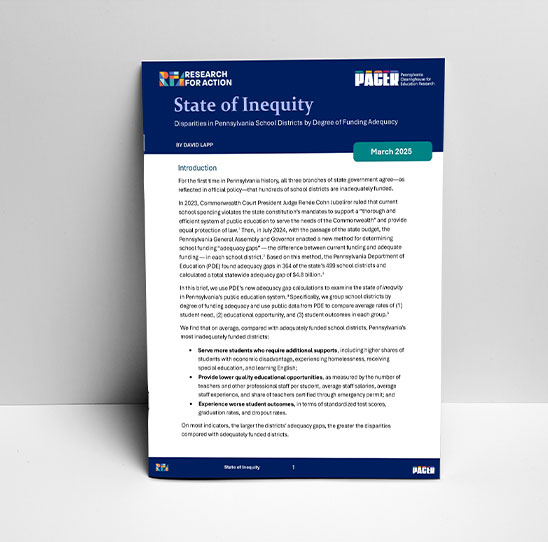
Publication
State of Inequity: Disparities in Pennsylvania School Districts by Degree of Funding Adequacy
David Lapp

Publication
Patterns of Student Mobility Among English Learner Students in Public High Schools in Philadelphia
Lindsey Liu, Sean Vannata
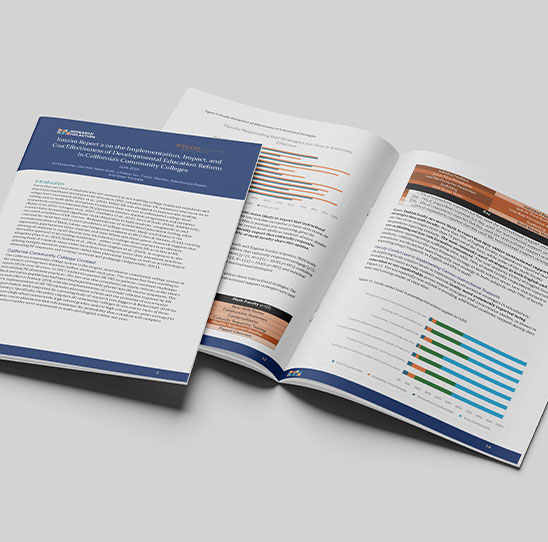
Publication
Interim Report 2 on the Implementation, Impact, and Cost Effectiveness of Developmental Education Reform in California’s Community Colleges
Kri Burkander, Dae Y. Kim, Mark Duffy, Lindsey Liu, Taylor Stenley, Keerthanya Rajesh, Sean Vannata
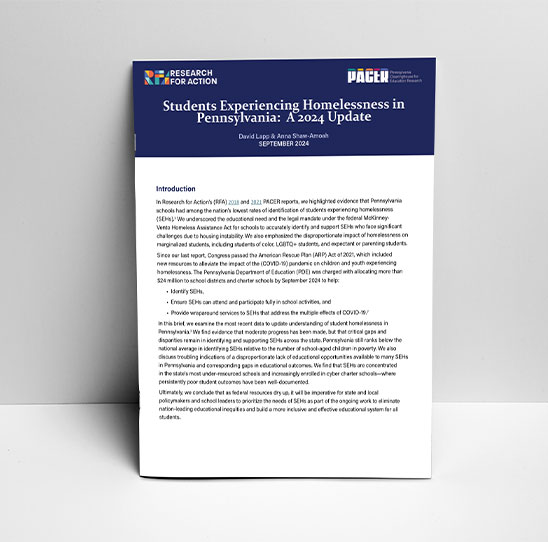
Publication
Students Experiencing Homelessness in Pennsylvania: A 2024 Update
David Lapp, Anna Shaw-Amoah

Publication
The When and How of Keystone Exams in the School District of Philadelphia
Molly Pileggi, Sean Vannata, Alyn Turner
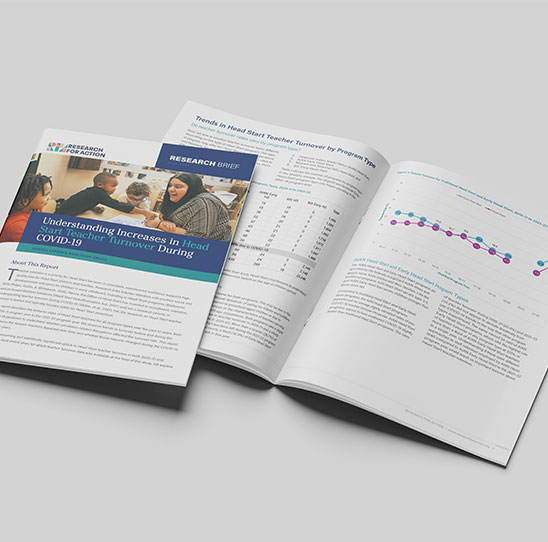
Publication
Understanding Increases in Head Start Teacher Turnover During COVID-19
Kendall LaParo, Anna Shaw-Amoah
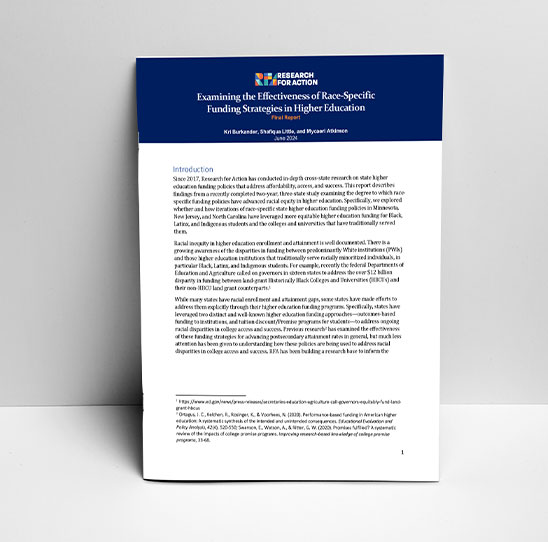
Publication
Examining the Effectiveness of Race-Specific Funding Strategies in Higher Education
Kri Burkander, Shafiqua Little, Mycaeri Atkinson
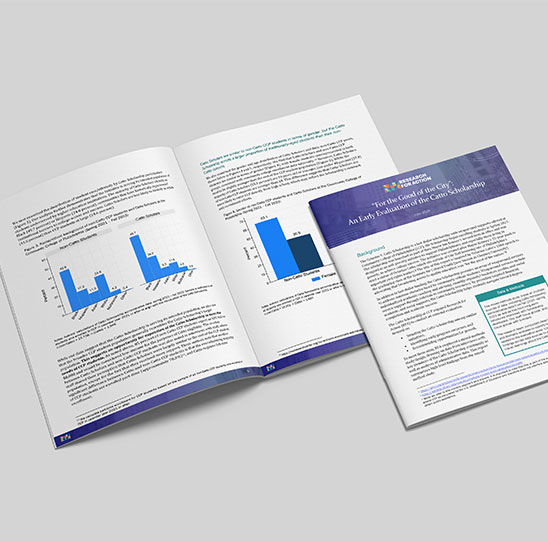
Publication
“For the Good of the City” An Early Evaluation of the Catto Scholarship
Kri Burkander, Karin Gegenheimer, Alita Robinson
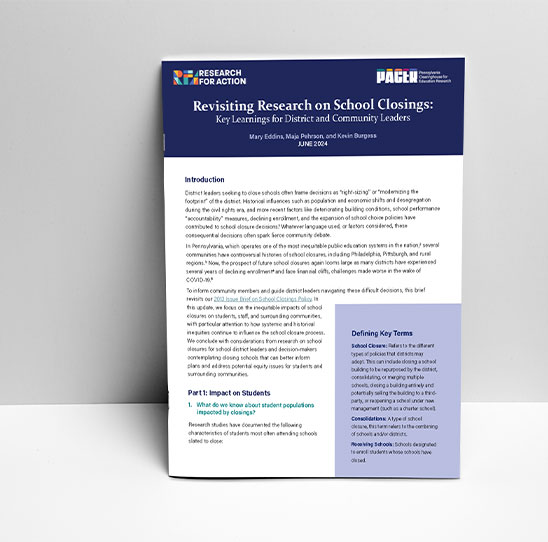
Publication
Revisiting Research on School Closings: Key Learnings for District and Community Leaders
Mary Eddins, Maja Pehrson, Kevin Burgess
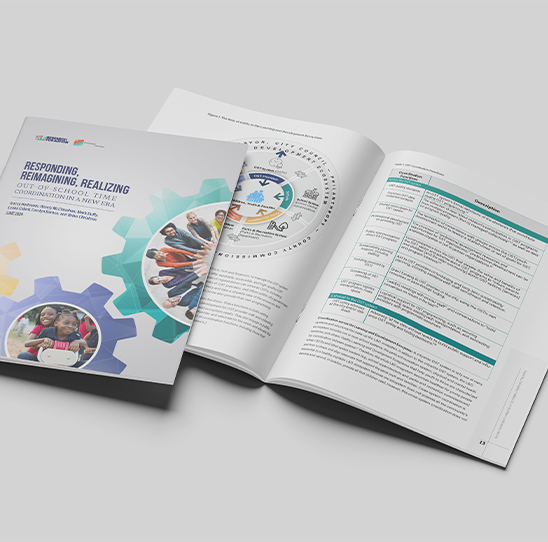
Publication
Responding, Reimagining, Realizing: Out-of-School Coordination in a New Era
Tracey A. Hartmann, Wendy McClanahan, Mark Duffy, Leana Cabral, Carolyn Barnes, Ph.D, Brian Christens, Ph.D
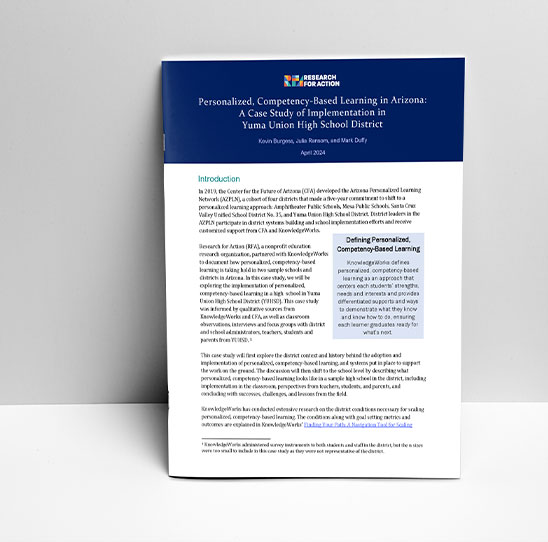
Publication
Personalized, Competency-Based Learning in Arizona: A Case Study of Implementation in Yuma Union High School District
Kevin Burgess, Julia Ransom, Mark Duffy
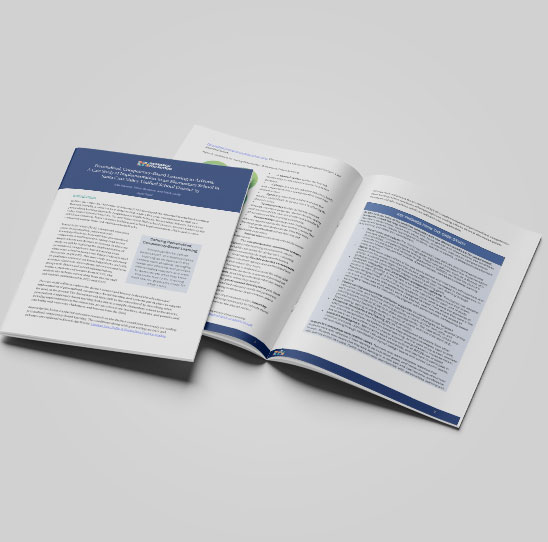
Publication
Personalized, Competency-Based Learning in Arizona: A Case Study of Implementation in an Elementary School in Santa Cruz Valley Unified School District 35
Julia Ransom, Kevin Burgess, Mark Duffy